MCCHR Community Projects
 The collaboration between the Breastfeeding Buddies Program of Waterloo Region and Manulife Centre for Community Health Research started as a program evaluation for the “Me? Breastfeed?” Workshop. There were 20 participants of the workshop who were interviewed by members of our research team. The main findings included building knowledge around best breastfeeding practices and demystifying myths associated with breastfeeding, including the availability of local supports and resources for new moms, and the sense of community developed in the Breastfeeding Buddies group. Through the research findings, it was evident that there needed to be more community-based peer supports incorporated into the Breastfeeding Buddies group.
The collaboration between the Breastfeeding Buddies Program of Waterloo Region and Manulife Centre for Community Health Research started as a program evaluation for the “Me? Breastfeed?” Workshop. There were 20 participants of the workshop who were interviewed by members of our research team. The main findings included building knowledge around best breastfeeding practices and demystifying myths associated with breastfeeding, including the availability of local supports and resources for new moms, and the sense of community developed in the Breastfeeding Buddies group. Through the research findings, it was evident that there needed to be more community-based peer supports incorporated into the Breastfeeding Buddies group.
By working closely with the Breastfeeding Buddies Program of Waterloo Region, we decided to continue our partnership and to produce a short film about our shared vision to build supportive breastfeeding communities. This Canadian film is intended to be an engaging learning resource for programs offering breastfeeding education, promotion and support. The film addresses common myths around breastfeeding, mothers overcoming barriers when breastfeeding, supportive partners, the peer support model, community support and public breastfeeding. Many local and national breastfeeding experts, including Teresa Pitman, Kathy Venter, Hiltrud Dawson, Linda J. Smith, Michelle Buckner, were interviewed for the documentary.
Breastfeeding Buddies Video Series:
- Breastfeeding Buddies Full Feature Film
- Breastfeeding Buddies Part 1
- Breastfeeding Buddies Part 2: Dispelling Common Myths
- Breastfeeding Buddies Part 3: Partner Support
- Breastfeeding Buddies Part 5: Community and Peer Support
- Breastfeeding Buddies Part 6: Public Breastfeeding
In January, 2019, the Kitchener Downtown Community Health Centre, Dr. Sandy Hoy (Laurentian University), Dr. Ginette Lafrenière (Wilfrid Laurier University), Dr. Lori Hill (Wilfrid Laurier University), and Dr. Abdel Elkchirid (Wilfrid Laurier University) were awarded a grant of $870,000 from the Lyle S. Hallman Foundation. This grant will help improve hospital to community breastfeeding supports and engage priority populations in order to increase breastfeeding rates across the Waterloo Region. For more on this exciting four-year project, check out the Laurier Spotlight, Lyle S. Hallman Foundation funds breastfeeding campaign partnership.
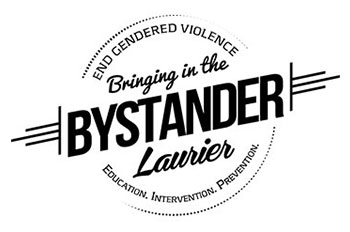 The purpose of “Bringing in the Bystander at Laurier” is to increase feelings of safety and reduce gendered violence on campus at Laurier by encouraging members of the campus community to be positive and engaged bystanders. Funding for this project has been provided by the Student Life Levy to the Manulife Centre for Community Health Research at the Lyle S. Hallman Faculty of Social Work.
The purpose of “Bringing in the Bystander at Laurier” is to increase feelings of safety and reduce gendered violence on campus at Laurier by encouraging members of the campus community to be positive and engaged bystanders. Funding for this project has been provided by the Student Life Levy to the Manulife Centre for Community Health Research at the Lyle S. Hallman Faculty of Social Work.
Based on recommendations of an extensive research project that took place between 2012-2015, the Change Project, was a project funded by the Status of Women Canada to the Sexual Assault Support Centre of Waterloo Region (SASC). Given a long-term working relationship between our research team and SASC, we conducted qualitative and quantitative research with Laurier students, staff, faculty and community partners in order to gauge the campus climate relative to gendered violence. This initiative produced a series of recommendations to create a healthier campus climate at Laurier. One of these recommendations was the development and implementation of a sustainable bystander intervention program that trains individuals to overcome common barriers to intervening when gendered violence occurs.
Train-the-Trainer Workshop
This full-day, interactive, train-the-trainer workshop provides a sustainable way for individuals to implement the Bringing in the Bystander curriculum on their campus. Attendees gain the skills to facilitate the program themselves, and train future facilitators within the Laurier campus community.
Bringing in the Bystander (BITB) curriculum
- The interactive, researched, and evaluated curriculum uses a community of responsibility approach.
- The program teaches bystanders how to safely intervene before, during and after an incident of sexual abuse, relationship violence and stalking.
- Through in-depth discussion of issues and role-playing, participants come to understand how they play a part in proactively preventing sexual and relationship violence, how they can help survivors get the help and support they need, and how they contribute to the creation of a campus climate that reflects a commitment to safety for all.
- The program is customizable to reflect the locations, colloquialisms and culture of our campus.
- The program is designed to be presented both as a 90-minute session and in a more comprehensive two session program totaling 4.5 hours.
- The BITB curriculum has also been offered to community partners outside the academic realm and has been well-received by attendees.
Community partners work in collaboration with MCCHR on subjects which are important to them. For example, a community partner can reach out to us for assistance in drafting a funding proposal or engage our services to offer board training or workshops on EDI. Inversely, because MCCHR acts as a crossroad between academics, students and other community partners, we often connect individuals who are seeking to work collaboratively with partners in various sectors. As such, we fulfill our mandate as a centre who is committed to creating opportunities for mutually satisfying partnerships between various stakeholders within the community. Additionally, we are often contacted by people working in the arts who wish to connect with our members in order to promote or offer services which may be beneficial to our membership. The backdrop to all of the work that we do is etched within a social justice framework. This allows for a broad understanding and execution of multiple types of projects within the local community and beyond.
An excellent example of a mutually beneficial university-community collaboration can be found between the Sexual Assault Support Centre (SASC) and MCCHR. In 2012, members of our research team worked with SASC in order to draft with members of the Sexual Assault Review Team (SART) a sexual assault protocol for the region of Waterloo. It took three years to finalize the protocol and we are happy to report that in 2017, we were retained by SASC who had received money in order to update the protocol in order to make it more meaningful for other stakeholders in the Region. Once again, members of our research team worked collaboratively with members of SASC and SART, and the protocol was finalized in October 2017. We are proud to say that many of our community partners are ones which we have nurtured for many years.
- Abrigo Centre (Toronto, Ontario)
- African Canadian Association of Waterloo Region and Area
- Basic Income Waterloo Region
- Breastfeeding Buddies
- Canadian Centre for Ethics in Sport
- Carizon
- Catholic Family Services, Peel Region
- Child Witness Centre Waterloo Region
- City of Brantford
- Domestic Violence Service Coordination Committee
- Eagle Place Neighborhood Association (Brantford)
- Family Transition Place, Orangeville
- Halton Women’s Place
- Healing of the Seven Generations
- Huntington Society West Central Ontario
- Inspire Health and Wellness
- Kitchener Downtown Community Health Centre
- KW Counselling Services
- Starling Community Services (formerly Lutherwood)
- Ministry of Community and Social Services
- OK2BME
- Recovery Theatre (Brantford)
- Sexual Assault Waterloo Region
- Sexual Assault Support Centre of Waterloo Region
- SHORE Centre (Sexual Health, Options, Resources and Education)
- Sudbury Counselling Centre/ Centre de Counselling de Sudbury
- Tshepo Institute for the Study of Contemporary Africa
- Violence Against Women (VAW)
- Watercourse Theatre
- Wilmot Family Resource Centre
- Windsor Essex Child Witness Centre
- Women's Crisis Services of Waterloo Region
- World Wide Opportunities for Women - Waterloo
A Survey of Post-Secondary Students and Instructors in Ontario
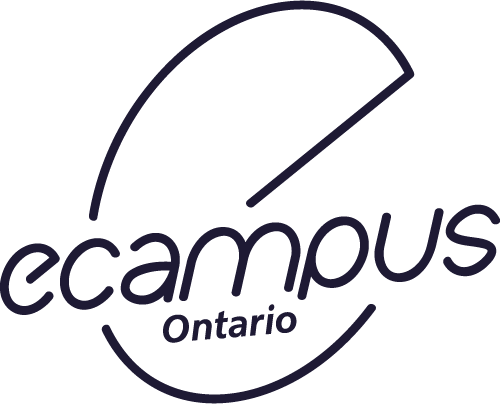 This research project examined many of the effects on teaching and learning at several Ontario post-secondary institutions due to the COVID-19 pandemic. Nearly 800 participants from across Ontario participated in the study, providing their perspectives on the current remote post-secondary educational landscape. Findings from this research shone a spotlight on the teaching and learning opportunities created for both instructors and students, as well as the challenges and needs experienced in the transition to remote learning.
This research project examined many of the effects on teaching and learning at several Ontario post-secondary institutions due to the COVID-19 pandemic. Nearly 800 participants from across Ontario participated in the study, providing their perspectives on the current remote post-secondary educational landscape. Findings from this research shone a spotlight on the teaching and learning opportunities created for both instructors and students, as well as the challenges and needs experienced in the transition to remote learning.
While the pivot began in March 2020, this particular research project provides a snapshot of the unique experiences and perceptions of students and instructors as institutions transitioned to remote learning in the Fall of 2020 in a more measured and deliberate capacity. Given our collective immersion and resignation within the realities of the pandemic on how education was and is now delivered, it is the hope that findings from this research and the recommendations provided herein serve as a starting point for conversations regarding the future of postsecondary education and remote learning in a post-COVID world.
Funding for this project was provided by the Student Experience Design (SXD) Lab, part of eCampusOntario.
Our research team investigated the following:
- Which aspects of online learning do students and educators identify as most helpful and/or challenging in the online student learning experience?
- What gaps do students and educators identify as influencing the teaching and learning experience, and what recommendations can be gleaned to optimize wraparound supports for online learners?
Evidently, it was a frenzied chore in March 2020 for university and college administrators and instructors to pivot to remote learning modalities. Ultimately, what has emerged from this report are narratives of both unmitigated challenges and unanticipated positive outcomes garnered from this transitional experience. The report findings highlighted important factors that impact students’ experience as online learners, including academic factors (i.e., aspects related to course design; instructor-specific factors; class engagement; concerns regarding the perceived quality of learning; interest in the course; and opportunities for skill development) and non-academic factors (i.e., difficulties learning from home; impacts on mental health and wellbeing; flexibility, independence, and access to learning; comfort and convenience of learning from home; opportunities to connect with peers; use of student supports/institutional resources; and feedback solicitation).
Overall, the findings suggest that there is no one-size-fits-all approach to learning online. Learning is a textured experience between student and educator, and institutions need to be responsive to heterogeneous needs. University administrators and instructors should not be the only stakeholders meaningfully responding to all student needs. According to our findings, students overwhelmingly felt supported and engaged by their instructors; however, there is room for a holistic and coordinated approach to remote teaching and learning – with the help of the provincial government, policymakers, students, and staff – to create an environment for academic success. Peer supports for students allow for self-empowerment, but students are also needed in key stakeholder roles to infuse their expertise into the development and sustainability of supportive educational measures.
From these findings, we conceptualized the following recommendations:
- Enhanced institutional and departmental supports for instructors.
- Flexible, engaging, realistic, and student-centered instructional and course design.
- An infusion of an equity, diversity, and inclusion (EDI) lens into the requirements and practices of remote learning and teaching.
- Coordinated, accessible, wraparound student-centered supports and services.
- Enhanced investments in student experience, community building, and peer-to-peer programming.
- Development of practice guidelines, best practices, and evaluation and quality assurance mechanisms for remote course delivery.
- Continued creation of knowledge, collaboration, and information sharing of best practices in online education.
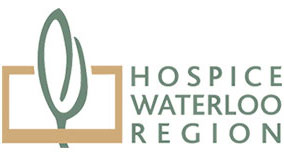 The 'Everyone Dies Project': Assessing Volunteer Recruitment and Retention in Region of Waterloo Hospice Contexts is a research study led by Principal Investigator, Dr. Cheryl-Anne Cait, and Co-applicant, Dr. Ginette Lafrenière, and in partnership with the Hospice of Waterloo Region. Funded by the Social Sciences and Humanities Research Council (SSHRC), this research study explored the implications of societal factors that impact the volunteers at the Hospice of Waterloo Region and how the organization can recruit and retain volunteers in the Region's changing demographic.
The 'Everyone Dies Project': Assessing Volunteer Recruitment and Retention in Region of Waterloo Hospice Contexts is a research study led by Principal Investigator, Dr. Cheryl-Anne Cait, and Co-applicant, Dr. Ginette Lafrenière, and in partnership with the Hospice of Waterloo Region. Funded by the Social Sciences and Humanities Research Council (SSHRC), this research study explored the implications of societal factors that impact the volunteers at the Hospice of Waterloo Region and how the organization can recruit and retain volunteers in the Region's changing demographic.
Our research was guided by the following questions:
- How are social, ethnic and demographic changes affecting traditional concepts of hospice volunteering?
- How has the volunteer experience affected volunteer perceptions of end-of-life transition?
Along with a number of Manulife Centre for Community Health Research (MCCHR) placement students and research assistants, we conducted interviews and focus groups with hospice volunteers, hospice staff, rural communities and key informants from ethnocultural communities in Waterloo Region. Participants spoke about transformational change through volunteering at Hospice of Waterloo Region and a lifelong dedication to volunteering. Interviews with key informants from ethnocultural and rural communities taught us about the need to demystify hospice services, understand gatekeeper agency issues, as well as the specificity of rural communities.
As a result of this collaboration, a short documentary was produced as a tool for the hospice to recruit community-based volunteers.
Living Below the Line (LBL), a 4-month project during March–June 2022, was for individuals living in poverty to co-create and present a new stage play with music and professional theatre makers. Fourteen individuals, along with Watercourse Theatre, co-created a stereotype-busting performance on the struggle, resilience, and hope associated with living below the poverty line, which highlighted systemic and relational issues associated with chronic poverty. Personal narratives were shared and concious-raising around the complex issues informing poverty were centered in this initiative.
Watercourse Theatre explores innovative ways to creatively and theatrically share the stories of individuals and groups in our society whose voices are often not heard. The project was funded through the Catherine Donnelly Foundation, Ontario Arts Council, and Pat the Dog. Dr. Carol Stalker and Dr. Ginette Lafreniere from the FSW were the researchers who spearheaded the evaluation of the project.
The play was offered five times throughout the Kitchener-Waterloo community in June 2022, with nearly a thousand collective attendees. The Faculty of Social Work at Wilfrid Laurier University was honoured to host its inaugural show on June 17, 2022, and was highly valued by attending social work faculty and students for its authentic and visceral portrayal, as well as the focus on the intersections social workers must pay attention to in their role perpetuating systems-level barriers.
The play has been featured in local news, such as CTV News Kitchener, CBC News, and The Waterloo Record.
The research study Re-imagining the Menopausal Narrative through a Photo Elicitation Strategy is a two-year pilot project funded by the Social Sciences and Humanities Research Council (SSHRC) Insight Development Grant. Under the leadership of the Principal Investigator, Dr. Ginette Lafrenière, this study explores contemporary narratives of menopause which seek to challenge the bio-medical discourse through documenting and acknowledging women, non-binary, and trans voices telling their own stories and experiences of menopause. This study was also dedicated to shifting the focus towards developing resources informed by the lived experiences of menopausal individuals.
Our specific objectives included:
- To explore, using qualitative and arts-based methods, the language used by people of diverse backgrounds to commmunicate lived experiences of menopause;
- To document, using arts-based methods, menopausal narratives to validate and normalize those lived experiences.
Moreover, we wished to understand the messages that people are receiving about menopause, where the gaps may lie in the dominant discourse, and how people experiencing menopause internalize societal messaging relative to menopause.
Within a series of consultations with individuals experiencing menopause during all stages (perimenopause, menopause and post-menopause), we captured personal stories through focus groups and individual interviews.

An excerpt from the graphic field notes recorded from a focus group.
 The Sexual Assault Response Team of Waterloo Region (SART) is a community coordinating committee made up of 20 partner agencies from the criminal justice, health and social services sectors. Our research team worked in close collaboration with SART from 2009-2012 in order to conceptualize the first Sexual Assault Protocol of the Waterloo Region. The protocol established a common understanding and framework for the provision of services to victims/survivors of sexual violence, enabling greater coordination and collaboration between community partners.
The Sexual Assault Response Team of Waterloo Region (SART) is a community coordinating committee made up of 20 partner agencies from the criminal justice, health and social services sectors. Our research team worked in close collaboration with SART from 2009-2012 in order to conceptualize the first Sexual Assault Protocol of the Waterloo Region. The protocol established a common understanding and framework for the provision of services to victims/survivors of sexual violence, enabling greater coordination and collaboration between community partners.
In 2017, our research team worked with the leadership of SART in order to update the protocol to make it more responsive to the diversity of individuals with whom SART interacts and supports.
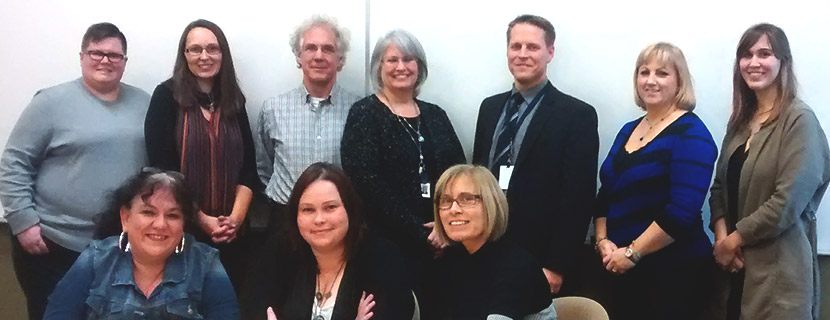
 Our research involved a qualitative methodology which gathered data from participants through individual interviews and focus groups. Interviews and focus groups were held with campus police, municipal police, university administration, university staff, and community service providers that support victim-survivors of gendered violence. Research participants were provided two case studies to reflect on how they would respond in their role in the cases. These case studies were written to demonstrate the nuances and intersectionalities specific to individual cases of gendered and sexual violence. Contradictions in messaging between university administration websites and policing websites appeared to manifest themselves on several of the university websites that were studied. The former sharing messages around consent and choice, the latter often sharing a message of “stranger danger” and victim responsibility for personal safety.
Our research involved a qualitative methodology which gathered data from participants through individual interviews and focus groups. Interviews and focus groups were held with campus police, municipal police, university administration, university staff, and community service providers that support victim-survivors of gendered violence. Research participants were provided two case studies to reflect on how they would respond in their role in the cases. These case studies were written to demonstrate the nuances and intersectionalities specific to individual cases of gendered and sexual violence. Contradictions in messaging between university administration websites and policing websites appeared to manifest themselves on several of the university websites that were studied. The former sharing messages around consent and choice, the latter often sharing a message of “stranger danger” and victim responsibility for personal safety.
Our findings, acknowledged widely by our research participants, reveal that formal reporting of gendered violence is rare, and that disclosure is more common. The most common barrier to reporting and disclosure on campus was a lack of clarity and transparency as to what resources, options and formal procedures were available to students. Many participants noted the need for survivors to understand the difference between disclosure and reporting and what these separate choices mean. Additionally, throughout our research process there appeared to be a dissonance with regards to how best to address the issue of gendered violence and the inherent tensions between responding to stranger versus acquaintance assaults.
The Social Justice Leadership Camp is an idea that Professor Lafrenière entertained for several years given her work with local women’s groups on issues relative to violence against women. According to Lafrenière, addressing gendered violence should be an issue that is discussed in both primary and secondary school systems. Inspired by youth programs offered in local schools by Halton Women’s Place and Family Transition Place, Lafrenière believed that Laurier could be pro-active in offering a summer camp for young people etched within a framework of social justice.
Enter Laurier MSW graduate and past research associate within the team, Jen Gordon, now Director of Advocacy at the YW Kitchener-Waterloo. Through her leadership and extensive experience spearheading various programs dedicated to girls and youth in the Region of Waterloo, she as well as members of her staff designed and delivered the curriculum for the youth camp.
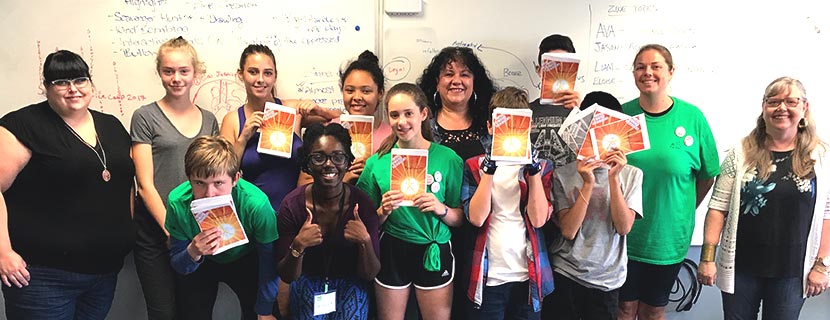
The Social Justice Leadership Camp was a small but important step in Laurier’s commitment to addressing gendered violence on campus. The Social Justice Leadership Camp took place in the summer of 2017. The camp focused on issues of citizenship, change making, community building, social justice, gendered violence and advocacy. During the camp, eight students between 12 and 14 years old were encouraged to think about issues relative to privilege, sexism and healthy relationships while exploring topics of bullying and other forms of violence.
A drama therapist facilitated several of the activities which allowed for students to explore issues related to privilege, racism, gendered violence and other forms of oppression. As evidenced by student evaluations, the experience of the summer camp was very positive as it allowed students to be heard and be creative.

Stretch for Success began as a pilot project to address a growing trend in muscular and joint injuries in children in the Waterloo Region. Problematic posture refers to the stooping/hunching posture being seen in young children, due largely to the increased use of portable technology. This is a detriment to children’s health and wellbeing and often causes neck and backache issues. It leads to headaches, digestive issues, fatigue, and general pain.
MCCHR partnered with Inspire Health and Wellness to develop video resources on stretching to reduce the symptoms of compromised posture in school-age children.
 This report highlights the results of student surveys completed by participants in the Succeed Clean project. The Succeed Clean project was funded by the Ontario Trillium Foundation to develop an approach to educating young people, parents, coaches and educators about the risks and realities of Appearance and Performance Enhancing Drugs (APEDs). The project was a partnership between the Canadian Centre for Ethics in Sport, University of Waterloo Athletics, Laurier Athletics, Waterloo Region Police Services, and the Kitchener Rangers Hockey Organization. The purpose of the program was to educate young people to help them to make healthy choices and reach their potential without appearance and performance enhancing drugs. The centre was involved to evaluate the program and hold parent community conversations to determine the needs of participants and the community. The centre developed the pre- and post-surveys that were handed out to students attending these educational presentations. The centre collected and analyzed over 1,000 surveys from eight different communities in Ontario between fall 2016 to spring 2017.
This report highlights the results of student surveys completed by participants in the Succeed Clean project. The Succeed Clean project was funded by the Ontario Trillium Foundation to develop an approach to educating young people, parents, coaches and educators about the risks and realities of Appearance and Performance Enhancing Drugs (APEDs). The project was a partnership between the Canadian Centre for Ethics in Sport, University of Waterloo Athletics, Laurier Athletics, Waterloo Region Police Services, and the Kitchener Rangers Hockey Organization. The purpose of the program was to educate young people to help them to make healthy choices and reach their potential without appearance and performance enhancing drugs. The centre was involved to evaluate the program and hold parent community conversations to determine the needs of participants and the community. The centre developed the pre- and post-surveys that were handed out to students attending these educational presentations. The centre collected and analyzed over 1,000 surveys from eight different communities in Ontario between fall 2016 to spring 2017.
The results reveal more support for the finding that APEDs knowledge, use, and beliefs are gendered. Males more willing to consider taking an APED, are then more likely to be taking a supplement, and are less likely to perceive supplements as risky and five of six APEDs users are male. This finding does not imply females should be overlooked, however.
The results offer some evidence that there is a relationship between nutritional supplements and APEDs, which was a questions raised in the parent community conversations. Students who indicated a willingness to use an APED were more likely to be taking a nutritional supplement and five of the six self-identified steroid/HGH users in the study were also taking 2+ supplements.
The results from the pre- and post-survey comparisons demonstrated that after the presentation, students increased their understanding of the potential risks of supplements, increased their knowledge about side effects of steroids, were less willing to take an APED and had increased knowledge about healthy ways to improve performance.
The Towards Hoarding-Responsive Communities Symposium was an attempt to bring together service providers from across the province from hoarding responsive networks (often composed of fire and police departments, social housing departments, landlords, municipalities and humane societies) with local and international academics. Over a two-day symposium, discussions were held about how different communities respond to hoarding, as well as the economic impacts of hoarding behaviour. Collaborative networks were developed to begin exploring a province-wide task force to address hoarding through a harm-reduction model.
The keynote speaker was researcher Gail Steketee, former Dean of the Boston University School of Social Work, who is a leader in hoarding and has published over 15 books and 200 articles on the topic.
The symposium showcased over a dozen workshops on topics such as: animal hoarding, trauma-informed practices, fire prevention and threat reduction, eviction and homelessness prevention, developing positive client relationships, family accommodation, developing a provincial network for service providers, perspectives from the front-line, an anthropological analysis of the role of professional organizers, and an introduction to the psychology behind hoarding and a viewing of the documentary My Mother’s Garden by Cynthia Lester.
Presentations:
- Buried in Treasures: An Overview of Clinical Intervention for Hoarding Disorder (Gail Steketee)
- Eviction and Homelessness Prevention (Douglas Levitt)
- Understanding and Treating Hoarding Disorder (Gail Steketee)
- Family Accommodation in Problematic Hoarding: When Does Support Cross the Line? (Karen Rowa)
- Hoarding and Professional Organizers: An Anthropological Approach (Katie Kilroy-Marac)
- Fire Prevention and Threat Reduction (James Hind)
- A Case Study from Waterloo Region (Kim Hodder & Linda Flemming-Hoarding)
- Understanding Hoarding: The Case for the Integration of Trauma-Informed Principles in Practice (Laurie Robinson)
- Understanding the Merits and Challenges of Collaboration: Exploring the Possible Development of a Provincial Network for Service Providers Working in the Area of Hoarding
